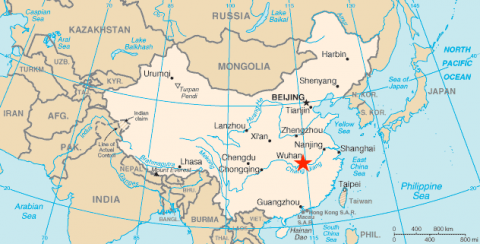At The Register, Alistair Dabbs describes the descent of formerly ascendent French politician Benjamin Griveaux:
Previously a key spokesman for president Emmanuel Macron, he was flying high in the polls to be elected mayor of Paris next month … until the electorate got a good look at his knob.
In a case of political revenge porn that is gripping the French nation almost as tightly as Griveaux was gripping himself, videos of him buffing the aubergine appeared on a short-lived satirical website apparently focusing on “political pornography” (don’t bother asking) and promptly went viral.
These were private, first-person videos he’d taken himself spiralising the old courgette and sent to the object of his amour who, unfortunately for his wife, was not his wife. Predictably, neither woman was impressed with the, er, outcome.
Cue an embarrassed press conference with lots of deliberately posed shots of him looking downwards and contrite, during which he announced he would stand down from the imminent elections and pass the, er, baton to someone else. Taking their example from Griveaux himself, Macron’s party La République en Marche (since redubbed “La République en Main“) did a bit of frenzied reshuffling to find a replacement.
Put aside the political, moral and human issues: these are being thoroughly argued out in the media as you read this. As for nudey selfies, come on, most of us have tried it for a laugh – albeit most probably when we were students. What I want to know is how an intelligent, well-connected and tech-savvy party executive like this could allow his personal instruction video on the subject of unclothed self-taming to get into the wild in the first place.
Griveaux’s official statement to the police claims that he sent the video person-to-person via a certain private messenging system – press reports do not name which one, unfortunately – that would delete the video after one minute. If this is true, it strengthens his case for “invasion of personal privacy”, which has massive punitive outcomes in France thanks to Jacques Chirac who as president beefed up the privacy laws to protect his illegal financial dealings from media scrutiny.
What messaging app was he using? And is he being all that tech-savvy in his belief that his video would self-destruct after 60 seconds, like in some ’70s episode of Mission Impossible? Even in WhatsApp, you have to remember to delete it yourself.
Perhaps he was using a business-focused porn-selfie messenger: a kind of doing-the-business sharing app. It’s the innovative new way of engaging with your contacts. Norbert Spankmoney wants to connect with you! Yes, I bet he does.
Come on, Ben, surely you know that for every ultra-secure, ultra-private, ultra-personal video messaging app, there are a dozen freebie video-grabbing utilities out there. Even if you code it up to prevent screen capture, someone could always video your video, just like they can photograph an onscreen secret document.
Give it up. Nothing is private any more.









